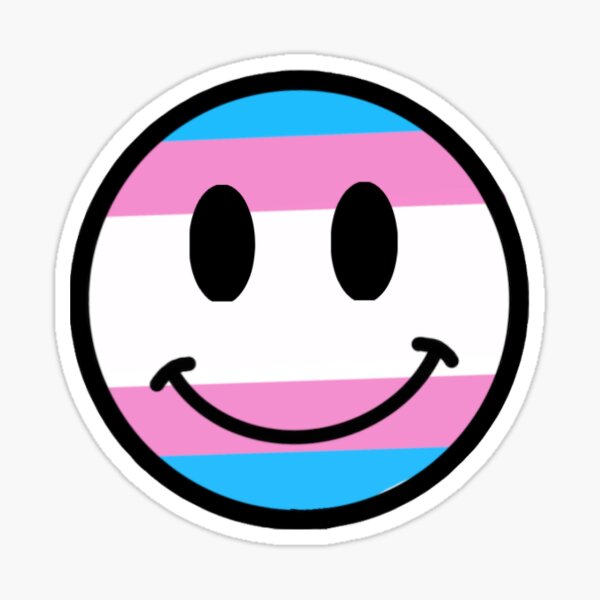Title. I am kinda wary of this because i don’t want to misgender anyone but I am not sure how to refer to those who you don’t know the preferred pronouns of? TIA, comrades!
That’s what people generally do, yes.
So my conception (at least, as it relates to me) is that they/them is fine, until you know my pronouns, at which point it becomes misgendering as I dont use they/them. I wont be upset with people for using they/them, but if someone only uses they/them for me even after knowing I use she/her i will be a bit upset.
The safe option if you’re unsure about the pronouns is to ask about pronouns or to use the name. Most people consider it ok to use gender neutral pronouns if you don’t know the person yet, i prefer to avoid pronouns entirely in such situations and use descriptors like “that person over there” or “the OP of that thread” or whatever fits in that case - it’s a bit more stilted, pronouns are a useful tool in language, but sometimes it’s just better to avoid them. The reason i’m not a fan of default they / them is partially because gender neutral pronouns are used for deniable misgendering by terfs, partially it’s because my first language doesn’t have widely accepted gender neutral pronouns and any usage of neopronouns like dey /dem is highly specific and individual, partially it’s because even as a nonbinary transfem, it feels kinda shit to me personally to be adressed in a gender neutral way. You can’t just assume everyone’s fine with neutral terms. My gender isn’t neutral just because it doesn’t neatly fit into the box society has constructed for femininity. Being nonbinary doesn’t make you androgynous by default, a sizeable number of trans people aren’t nonbinary and a sizeable number of nonbinary people who do use other pronouns than he / him or she / her do not go with they / them, either.
ofc it’s always ok to use they / them when you’re talking about groups and use it as a plural, or when you’re talking about unspecified people instead of certain individuals. But if you’re talking about a distinct person and can’t ask them their pronouns, pronoun avoidance works better than just using they / them as a hotfix.
thank you! this was very helpful.
I’m against proactively putting people on the spot by asking, it forces you to either misgender yourself or out yourself, not very fun in either case. Also personally I prefer the they/them hotfix as a default norm is easier than expecting people to avoid pronouns altogether (but yeah either works)
English has been working that way for centuries
The vast majority of people I’ve spoken to on the topic outside of the internet tell me that they/them is appropriate unless you know they do not prefer to be referred to as they/them. Basically if you’re referring to someone you don’t know pronouns for and don’t have an opportunity to ask them…then they/them is fine. If someone has a nametag, or you have been told their pronouns, or you have an opportunity to ask them, then use the pronouns they’ve told you. It’s kinda doubly confusing because at least in English “they” is never a gramatically incorrect pronoun…but just because you’re gramatically correct if you refer to everyone as they/them all the time doesn’t mean you should. Basically make the best possible effort you can to positively confirm someone’s pronouns before referring to them with any pronoun first, and if you can’t positively confirm someone’s pronouns first, then they/them is usually the best option. Maybe this is just because I know a whole bunch of folks who prefer they/them, so their opinions on it are colored by their own identity.
Not everyone agrees with this though. I’ve called someone that I had no possible way to know the pronouns of “they” once in public and been snapped at by someone who wasn’t even part of the conversation that did know this person’s pronouns, and, okay. I made my best effort, it wasn’t good enough for that person in that instance, so I apologized, corrected myself, and moved on. You’re not going to get it right for everyone 100% of the time in all instances, it’s just impossible because there is no 100% agreed upon convention that works in all languages at all times. Make the best possible effort you can, and if someone calls you out on it, don’t take it personally, apologize, correct yourself, and do better next time. Even in this thread I won’t be surprised if someone says I’m wrong because I missed some nuance or forgot about some circumstance that is important to their experience. That’s fine, I’ll learn something and do better next time.
A trans friend of mine goes by the maxim of:
“everyone’s a they 'til they otherwise say”.
It’s cute and it works.
Yeah, if you don’t know someones pronouns and they don’t have it listed anywhere easily visible(assuming this is online) then they/them is pretty much always appropriate.
Its always good to make a quick effort to check though if you are unsure.
Yeah
what lilypad said is the most common take I’ve heard as well, and more or less how I feel about it too. They/them is fine as long as nobody’s told you otherwise.
but if someone is clearly going for one or the other, I feel like it’s also fine to use she or he, I feel like it can be exhausting to constantly get they’d when you’re obviously going for one of the binary. The most important part is that you use the correct pronouns when/if someone corrects you or you realize everyone else around you is using a different one (and you can always ask if you really aren’t sure!)
“Clearly going for one or the other” doesn’t always work that well. The default should be to always ask for pronouns, and that should be normalized a lot more. I know from personal experience how validating it feels to be gendered correctly on a guess, i love when that happens, but i know so many people where appearance and pronouns do not match, especially when it comes to neopronouns. How do you guess a transmasc person is using en / en instead of he/him or they / them? Or that somebody uses plural they because they have DID? Or that the person in front of you who “looks like using he / him” pronouns is a boymoding early transition trans woman already going by she / her in the circle you’re in? Or if the lesbian over there uses she / her, xier / xiem or is one of the elusive he / him lesbians? Or if that high femme that you’ve automatically assumed to 100% be a cis woman is actually a nonbinary transfem who prefers dey / dem over she / her?
These aren’t hypotheticals either, these are all people you’d run into at any trans meetup in my local queer community. That’s a normal saturday night for me. Sure, we also have a ton of femme presenting she / her catgirls and masc presenting he / him skater boys, but not all of them have perfect passing, either.
Yeah I definitely have some reservations about it, and mostly included that since it’s a perspective I’ve heard from other people, but you’re probably right that normalizing asking for pronouns is the much better way forward. But some small number of people do take that as a slight as well which sucks. I hate discourse
Well there’s closeted trans people for whom stating their pronouns either means misgendering themselves or doing a forced outing and both of these are horrible choices, so there’s that. That’s a concern i struggle with in that regard and that i still need a good solution for. That’s a legitimate case of people having reservations about mandatorily stating your pronouns. That’s also the only case i can think of that i think is a valid concern.
When we’re instead talking transmeds who object to pronoun circles bc they want to lord over other trans people how cislike they are and how much better they pass, i honestly dgaf. I know that type and they’re just toxic shits you can’t build a community with bc they’ll almost immediately go out of their way to actively harm community members that rub them the wrong way - be it because they do not fit their narrow view of cis-sanctioned transness, or that they perceive as threatening and as rivals because they believe them to be prettier than themselves or because they’re too openly queer or w/e. I have friends who carry trauma from interacting with that kind of person that means they need my emotional support every time we go to a community meetup together and that has left them with lasting aggravation of their dysphoria. Transmedicalism is a threat to trans communities, i’ve seen way too often how much damage it causes. Not only that, they will always place demands by dominant society above queer liberation when there’s even the tiniest conflict between the two. When i can’t work with these people without hurting my friends, when they are useless in achieving political goals because they constantly and reliably fold to transphobes, i view it as a feature when they find more NB-inclusive social routines alienating.
Generally yeah, but it can come across as degendering, especially if the person was made their pronouns visible before. Degendering can be a very painful experience and is almost a textbook case of microaggressions. Better to just ask. Everybody should ask pronouns pretty much right away tbh, since it’s the only correct way to not accidentially misgender or to conflate presentation and gender.
But if the typical liberal who would never ask about pronouns ignores my femme presentation and just corrects away from assuming my gender correctly to a stilted gender neutral word they clearly dont use like that often, it still stings, bc it tells me I have been clocked (also I have intense dyspraxia and knowing I fucked up make-up or voice mixes in with gender dysphoria)
Extra question: what if I forget about your pronouns and have to refer to you in a conversation that you’re not involved in? Is it rude to default back to they/them?
I have had several dozen students and while I do my best to get to know everyone, it is simply impossible to remember every single person, especially when you’re someone who are bad with names.
deleted by creator
Yeah I always do that if I don’t know and can’t reasonably ask them at the moment.
I like to think of it like other info-agnostic words. It’s fine if you don’t know, but once you know, you use what they prefer as a sign of respect.
Like how you can refer to someone across the room you haven’t met as “that person over there”, but if they were just talking to you and had introduced themselves, then calling them that would be kinda uncool.
just ask













